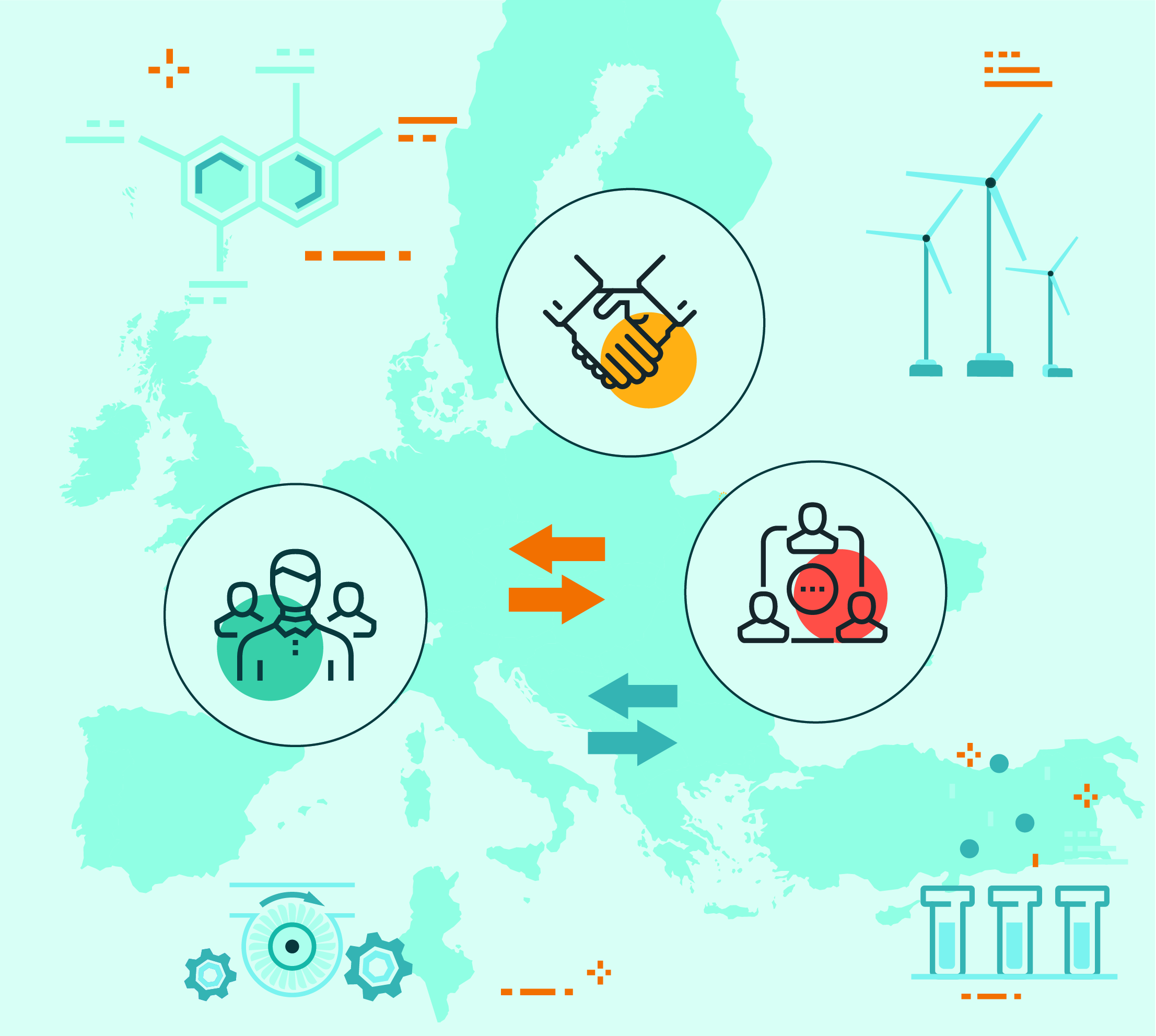Reducing the R&I divide among countries by sharing knowledge and expertise across Europe in Horizon 2020
This focus allows the European Research Area (ERA) to function in a more efficient and homogeneous way, where the individual strengths of each country may be optimised. This will be achieved by encouraging organisations in participating countries to further develop and take greater advantage of their R&I potential through several specific measures involving mentoring, networking, communication and partnering activities.
Making the most of European potential
The 'Spreading Excellence and Widening Participation', programme of Horizon 2020, therefore, aims to help close the R&I divide by improving the participation rate of low performing R&I countries. This will enable them to fully realise the potential of Europe’s gifted researchers and ensure the benefits of an innovation-led economy are both maximized and spread across the EU. Entities from 15 MS (Bulgaria, Croatia, Cyprus, Czech Republic, Estonia, Hungary, Latvia, Lithuania, Luxembourg, Malta, Poland, Portugal, Romania, Slovakia and Slovenia) are currently eligible for Widening support as project coordinators. A number of AC to Horizon 2020 are also eligible for specific support. Widening consists of three key actions: Teaming, Twinning and ERA Chairs. In Teaming, a MS that performs less well in R&I is partnered with an advanced institute to create a new (or update an existing) centre of excellence. Twinning means linking a university of research institution in a MS that is underperforming in R&I with at least two internationally-leading counterparts in Europe. Activities supported include short-term staff exchanges, networking seminars as well as communication and outreach activities.
Major benefits for participants
Internationally-leading research institutes in Europe, commonly referred to as ‘Advanced’ partners in Teaming and Twinning are encouraged to participate and expand their traditional networks for future strategic collaboration. All projects can benefit from working with an emerging pool of talented researchers. They can also access emerging markets, where those institutions that are currently catching up may play a key role in the future. Hence, developing these synergies will increase efficiency and positively impact jobs, growth and competitiveness across Europe. This CORDIS Results Pack therefore focuses on 10 projects that are spearheading the Widening Participation instrument under the EU’s Horizon 2020 research programme. The CEITER project facilitates structural changes in Estonia and the development of a Centre of Excellence in Educational Innovation. Through CEITEC_ERA, Masaryk University will recruit a key research leader to fill the European Research Area Chair. ELEvaTE will help advance the excellence of the Electron and Plasma Physics Laboratory at Comenius University in Bratislava, Slovakia. EnvMetaGen will expand the research and innovation potential of the Research Network in Biodiversity and Evolutionary Biology, by creating an ERA Chair in Environmental Metagenomics at the University of Porto, Portugal. FOWARIM will strengthen the research capacity of the Malta College of Arts, Science & Technology Water Research and Training Centre. MaXIMA has increased research and innovation capacity at the University of Varna, Bulgaria, in the field of computational modelling of breast tumours. PaRaDeSEC will help establish a semiconductor radiation detection group at the Ruđer Bošković Institute in Croatia. STRONGMAR helped Portugal’s Institute for Systems and Computer Engineering, Technology and Science become a centre of excellence in maritime and deep-sea technologies. SuPREME teamed up the Polish Academy of Sciences’ Institute of Fluid-Flow Machinery with European partners to update Poland’s energy sector with renewable technology. Finally, TwinPV enhanced the research field of photovoltaics and grid integration in smart grids at the University of Cyprus through links with Austrian and Danish institutions.



